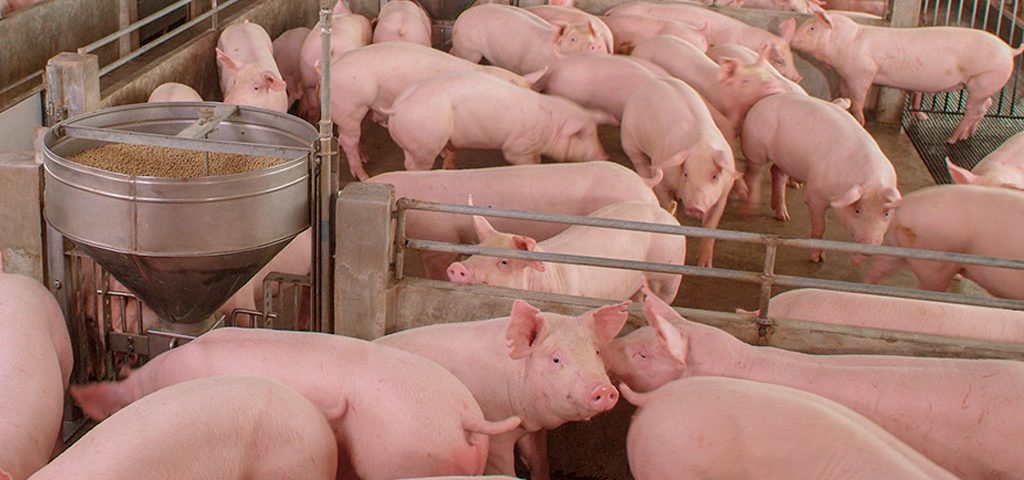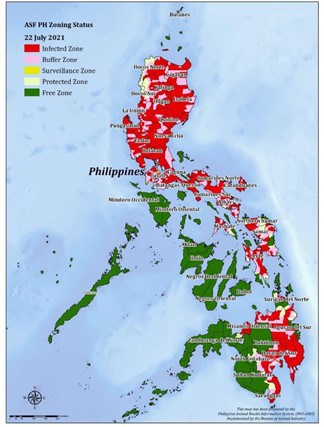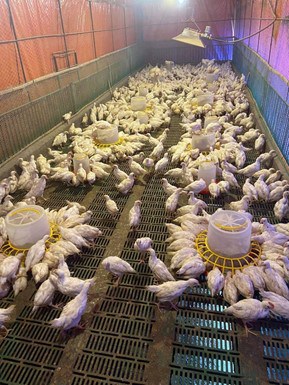African Swine Fever: Philippines Aftermath

African Swine Fever, or commonly known as ASF, was first discovered in Kenya but was reported as early as 1907. This disease causes high mortality and can wipe out the entire pig herd in a couple of days. There is no vaccine for ASF nor any known cure. It also has the ability to withstand extreme conditions and can even survive even after processing. The good thing is that it poses no threat to humans.
The first outbreak reported in the Philippines happened last July 2019 in Rizal province with limited information. The first lab test happened a month after confirming the samples submitted were ASF positive. From then on, the disease spread rapidly to neighboring provinces and now on nationwide spread. As of this June 2021, total swine population dropped 50%, or 6.6 million heads, from 13 million heads pre ASF. Swine farmers are at a loss, others went bankrupt.

What’s Next?
Farmers who managed to stay positive maintained their farms with reduced population. Some started shifting their farms to other species while many went to the next best protein source, which is poultry (broiler/layer).
Welkin farm around 500 sow-level before shifted now to Ready to Lay (RTL) chickens venture. Mr. Lester Co said it was really hard to let go of his initial passion. It hurts most when his trusted and longtime employees went home on their own decision to relieve their boss some burden on their expenses. He just retained some people for this new business he is doing. He said going to RTL business is still new to him and he is still learning the ins and outs of the new set-up. The total population is around 12,000 heads and may increase more as demands rises. He further mentioned that given a chance he would still go back to swine farming if there is already a vaccine, but for now he is happy there is still business in animal industry.

Another family owned 2,000 sow-level farm with 5 farm sites, have also diverted their operations to Poultry Layers. They dissolved 3 of their sites and focused on just 2 sites, since it is too costly for maintenance. According to the owner, 1 of the sites was converted to layers just to support expenses in the farm. It will be an avenue also for him and his family to gain experience also on this growing industry. He mentioned that at the start business was doing good but had some drop in last few weeks due to egg prices. He said prices took a dip due to demand but may soon get back once lockdown eases. When he was asked if he is going to back to pig farming once atmosphere is clearer, “Definitely! Filipinos are pork lovers. We love pork more than any other meat.” He said.
Philippine Government Action to address ASF
Government is doing collaboration with a foreign company thru efforts of Department of Agriculture and are now doing vaccine trials on several farms. The trial for the ASF vaccine, which began in 10 commercial farms in Luzon last April, will take 48 days or up to more than 2 months, according to Agriculture Assistant Secretary Noel Reyes. After this, assessments will be made depending on the outcome. The company that produced the vaccine and the farms undergoing the trial have not yet been named.
Agriculture Secretary William Dar had earlier said that the case of ASF in pigs in the country was declining.
Swine groups are hoping that the government will fund the ASF vaccines once made available.
With these developments future looks bright again for Philippine hog industry.
